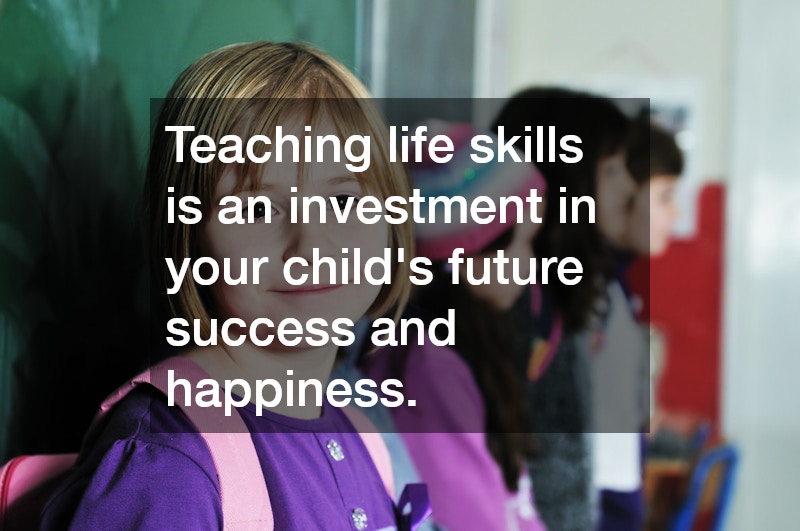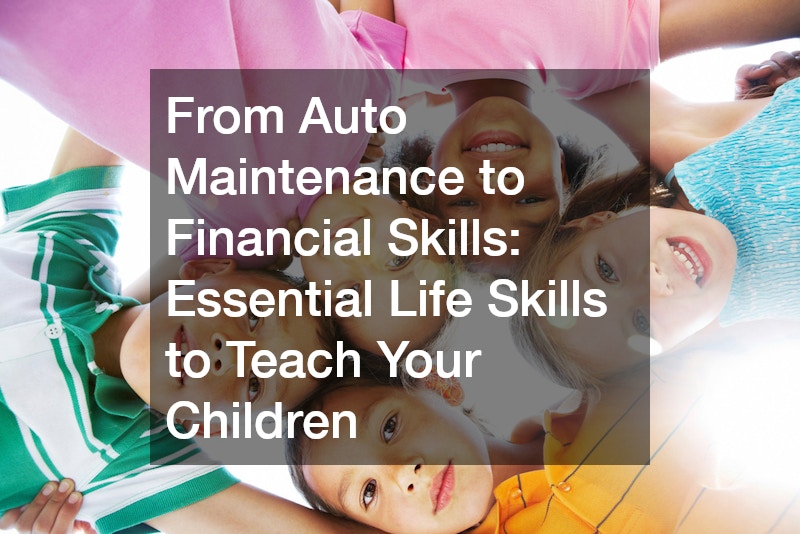In today’s fast-paced world, equipping children with essential life skills has become more crucial than ever. While academic success is important, it is equally vital for children to understand and manage real-world situations effectively. Life skills such as auto maintenance and financial literacy prepare them to become self-sufficient and responsible adults.
Parents often focus on nurturing academic excellence, but life skills tend to get overshadowed in the process. However, many experts argue that life skills are what truly prepare children for the future.
These skills not only provide practical benefits but also foster a sense of independence and confidence in young minds.
Structured learning of life skills allows for problem-solving and adaptability in various situations. Whether it’s understanding the basics of auto maintenance or managing personal finances, these skills lay the foundation for a stable and fulfilling life. Therefore, it is imperative for parents to include these lessons in their children’s upbringing.
Understanding Auto Maintenance
Auto maintenance is an invaluable life skill that goes beyond mere knowledge of cars. Teaching your child the basics of maintaining a vehicle can enhance their understanding of responsibility and safety. When children learn how to check the oil, change a tire, or even understand the dashboard alerts, they are better prepared for unexpected situations.
Engaging in auto maintenance can also promote critical thinking and problem-solving skills. For instance, identifying engine problems or performing minor repairs requires analysis and decision-making. These skills can translate into other areas of life, helping your child become a well-rounded individual.
Furthermore, there is an undeniable sense of accomplishment that comes from mastering auto maintenance. As your child gains confidence in handling vehicles, they also develop a sense of pride and independence. These are qualities that can significantly contribute to their personal growth and development.
Encouraging Financial Literacy
Financial literacy is often overlooked, yet it holds the key to a secure and independent future. Teaching your children how to manage money, budget, and save can significantly influence their financial stability as adults. Effective financial management can prevent the pitfalls of debt and financial missteps that plague many adults today.
Children who understand the value of money are more likely to make informed financial decisions. This includes understanding the importance of savings, investments, and even the dynamics of credit. Such knowledge equips them to handle financial challenges with confidence and foresight.
Moreover, financial literacy encourages a sense of discipline and responsibility. As children learn to manage allowances or savings accounts, they acquire habits that foster accountability. This continued practice can lead to a sense of achievement, motivating them to set and achieve financial goals throughout their lives.
Teaching Time Management
Time management is a crucial skill that can enhance a child’s ability to balance various aspects of life. Knowing how to allocate time effectively between studies, chores, and recreation is critical to achieving a well-rounded lifestyle. This skill not only improves productivity but also reduces stress and anxiety.
From planning their homework to scheduling extracurricular activities, time management teaches responsibility and prioritization. Children who master this skill are better prepared to handle future commitments, whether in their personal or professional lives. The process of organizing time encourages discipline while also allowing flexibility and creativity.
Additionally, effective time management builds character and resilience. When children know how to manage their time, they are less likely to feel overwhelmed by tasks or deadlines. This ability to navigate pressures can significantly improve their confidence and adaptability in various scenarios.
Creating Communication Skills
Effective communication is a fundamental life skill essential for personal and professional success. Teaching your child how to express themselves clearly and listen actively lays the groundwork for positive relationships. These skills are invaluable in various contexts, from familial interactions to career advancement.
Developing communication skills involves both verbal and non-verbal elements, including body language, tone, and eye contact. By fostering these skills, children learn the importance of empathy and understanding. This can lead to enhanced cooperation and harmonious interactions with peers and adults alike.
Furthermore, strong communication skills empower children to advocate for themselves and their ideas. They become confident in voicing opinions and negotiating, which are crucial abilities in both academic and real-world settings. As children grow, effective communication becomes a cornerstone of building networks and navigating life’s challenges.
Incorporating essential life skills such as auto maintenance, financial literacy, time management, and communication into your child’s education equips them for a successful future. These skills foster a sense of independence, resilience, and confidence that academics alone cannot provide. As parents, nurturing a well-rounded skillset prepares children not only to survive but to thrive in an ever-evolving world.
While school teaches many critical subjects, life skills lay the foundation for practical wisdom and real-world application. Cultivating these abilities enriches your child’s experience and empowers them to navigate life’s complexities with ease. Through consistent practice and support, children can develop the tools necessary for a prosperous and fulfilling life.
Ultimately, teaching life skills is an investment in your child’s future success and happiness. By preparing them with valuable lessons outside the classroom, you enable them to become capable and resourceful individuals. The benefits of imparting these skills will echo throughout their lives, leading to lasting outcomes that extend far beyond traditional education.
.


